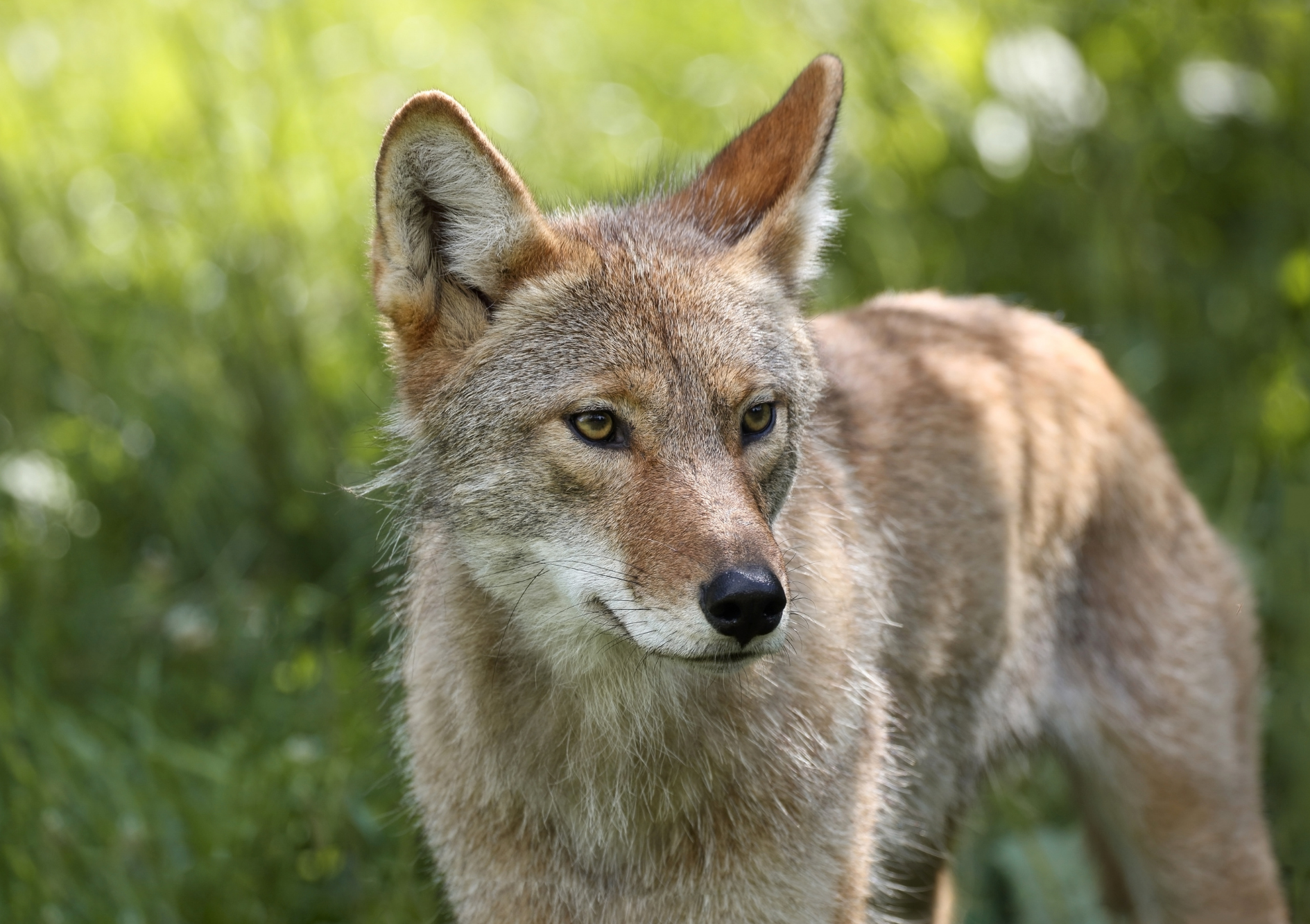Coyotes

Environmental Services Building
4277 Wire Rd, Suite 100
-
(334) 501-3080 -
webenvirsvc@auburnal.gov -
- M-F
- 7:30AM-4:30PM
-
Avoiding conflicts with coyotes
Coyotes are incredibly adaptable. They often flourish near humans as we encroach into their natural habitats. Because of this, it's not uncommon to see coyotes in urban areas. They generally fear humans and help create a natural balance when it comes to typical prey like rodents and deer.
However, coyotes should become a concern when they have habituated to human activity. There are a few steps you can take to help prevent conflicts with coyotes in your neighborhood:
Do not feed coyotes
Feeding coyotes, accidentally or intentionally, can cause coyotes to habituate and lose fear of people or become food-conditioned, in which they associate humans or human-places, like backyards, with positive food rewards. Consequently, some coyotes develop nuisance behaviors that lead to conflicts with pets, increased daytime activity in residential areas, and, more rarely, aggressive behavior towards people.
The number one most effective way to prevent increased coyote activity in your neighborhood is to eliminate possible food sources. Many people unintentionally feed coyotes by leaving pet food or garbage out at night or having large bird feeders. Coyotes are usually not interested in bird food, but bird feeders often attract rodents, especially squirrels, which then attract coyotes. Review your property to ensure compost piles and trash bins are not allowed to be a source of food. Coyotes are opportunistic feeders and will take advantage of an easy meal.
Do not let pets run loose
Pets left outside, remain at risk for predation and unnecessary conflict. Free-ranging domestic cats may attract coyotes; it is important that domestic cats be kept indoors and that feral cats be spayed or neutered to control this population.
Keep dogs on leashes. Sometimes dogs running off trail will follow wildlife scent, potentially leading to a surprise encounter with a coyote, which may provoke an attack on your pet. If a coyote seems intent on defending a certain area, particularly around pup rearing season (April-July), you may be near its den. Killing and/or injuring of larger canines that approach active dens may occur during this time due to pup protection.
Reinforce coyotes fear of humans
Harassment measures, such as loud noises, may discourage coyote activity and reinforce the associated fear of humans. Coyotes learn from past events that were unpleasant or frightening, and they often avoid such events in the future. If you encounter a coyote, make yourself loud by yelling or using homemade noisemakers and appear large by standing tall and waving your arms.
Deterrents or fencing may help
Remotely activated lights, or sound-making devices may help to discourage coyotes out of small areas such as yards. Fencing may keep coyotes out of a yard, particularly if it is more than six feet in height.
Leave them alone
If a coyote is acting as a coyote should by avoiding humans and pets, leave it alone. The removal of one animal does not ensure removal of coyotes from your area in general. Research indicates if a coyote has a history of co-existing in an area and not causing damage, it may be advantageous to leave them alone. Their removal will open up a territory that may become occupied with coyotes that are more likely to cause damage or prey on domestic pets.
Report coyote conflicts
Often times individuals only end up telling friends/neighbors of a coyote sighting or posting about it to local neighborhood group sites. Not only can this lead to mis-information, but reported sightings never reach the appropriate channel for documentation until there is a problem. Animal Control maintains a coyote activity mapping database. This information is used to track potential travel patterns throughout the City to aid in planning future management programs.
The Animal Control Division also provides information, conducts site visits on a case-by-case basis, and contracts with the USDA to implement wildlife damage management strategies within the City. Coyote conflicts should be reported to the Animal Control Division at (334) 501-3090.

